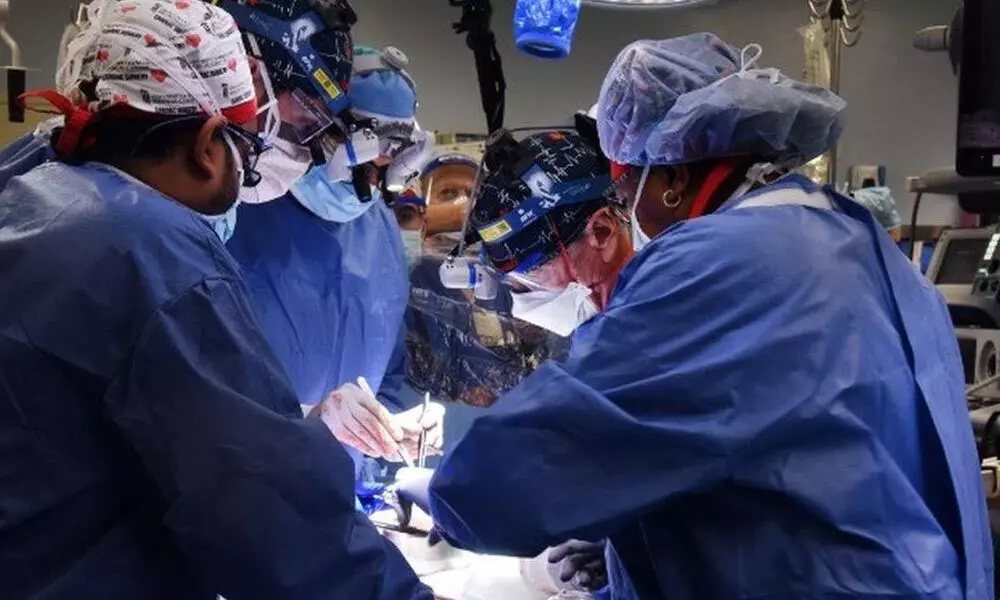US man gets pig heart in world-first transplant
USFDA grants an emergency authorisation for the surgery on Dec 31 to save the patient's life
image for illustrative purpose

New York: In a rare medical feat, theUS doctorshave successfully transplanted a genetically-modified pig heart to a 57-year-old patient with terminal heart disease. The patient, David Bennett, a Maryland resident, who had been hospitalised and bedridden for the past few months, is doing well three days after a first-of-its-kind surgery, said doctors at University of Maryland Medicine (UMMC) in a statement.
The organ transplant demonstrated for the first time that a genetically-modified animal heart can function like a human heart without immediate rejection by the body, it added.
Bennett was deemed unfit for conventional heart transplant or an artificial heart pump due to a life-threatening arrhythmia -- an irregular heartbeat condition that can lead to cardiac arrest or stroke. He was also connected to a heart-lung bypass machine, called extracorporeal membrane oxygenation (ECMO), to remain alive.
The US Food and Drug Administration had granted an emergency authorisation for the surgery on December 31 "in the hope of saving the patient's life". The team of doctors at UMMC conducted the procedure called Xenotransplantation, wherein they "knocked out" three genes -- responsible for rapid antibody-mediated rejection of pig organs by humans -- in the donor pig. And then six human genes -- responsible for immune acceptance of the pig heart -- were inserted into the genome.
One additional gene in the pig was also knocked out to prevent excessive growth of the pig heart tissue, which totaled 10 unique gene edits made in the donor pig. While the process could potentially save thousands of lives, it carries a unique set of risks, including the possibility of triggering a dangerous immune response. These responses can trigger an immediate rejection of the organ with a potentially deadly outcome to the patient, the doctors said.
Thus, the physician-scientists also used a new drug along with conventional anti-rejection drugs, which are designed to suppress the immune system and prevent the body from rejecting the foreign organ.

